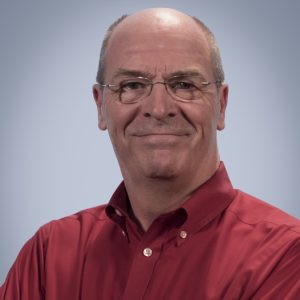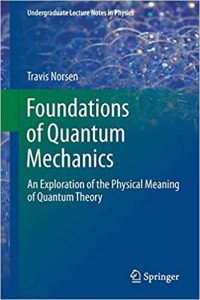Erik Deumens
Director of  UF Information Technology Research Computing and scientist in the Department of Chemistry and Department of Physics.
UF Information Technology Research Computing and scientist in the Department of Chemistry and Department of Physics.
Activities and areas of Interest and Research
- Compliance for research computing
- NIST SP800-234 HPC Security Overlay (Initial Public Draft) During 2024, the group developed a security overlay to NIST 800-53 moderate baseline for HPC systems. This document is now published for comments at https://csrc.nist.gov/pubs/sp/800/234/ipd
- NIST SP800-223 HPC security During 2022, as a member of a group lead by NIST’s Yang Guo, I helped write NIST Special Publication 800-223. The period for public comment closed on April 7, 2023 and the team updated the document. Go to https://csrc.nist.gov/pubs/sp/800/223/final to download the publication, published in February 2024.
- Computing with restricted data (Dec 2021-Nov 2024) With funding from NSF, Carolyn Ellis at UCSD and I are creating a community of practice for regulated research. Check out the website RegulatedResearch.org.
- Artificial Intelligence (June 2021) A lot of effort is now going into the UF AI initiative. Watch the AI page for activities!
- With Matt Gitzendanner, I published a chapter in a book edited by Prof. Rachel Fu “Artificial Intelligence, Machine Learning, and Robot Applications in Hospitality Businesses.”
- Foundations of Quantum Mechanics
- In February 2024, I submitted the paper “A mathematical model of measurement in quantum theory” to Foundations of Physics. The paper was not accepted for publication, but I received really valuable feedback from the anonymous reviewer. I am rewriting the paper to address the comments. I expect to submit it in 2025, the International Year of Quantum Mechanics.
- Take a look at the page on disentanglement of quantum mechanics for a series of notes where I explore the development of quantum mechanics and try to figure out how the community of physicists, engineers, philosophers, and mathematicians interested in the foundation of quantum mechanics can come to an consensus. Hopefully thus can be done around the 100th anniversary of quantum mechanics.
- In Spring of 2022, I taught in a course by Prof. Chris Dorst about the physics inside the quantum measurement process. That was fun and instructive. It shows that the standard approach with Born’s rule and the Copenhagen projection postulate, or collapse of the wave function, is an idealization and oversimplification. It has show to be effective, but in the ear of building quantum computers it may not be adequate.
- Quantum Field Theory (July 2021) I am finalizing a mathematical paper on the construction of quantum fields. I have been working on this problem since 1980, first at a low rate, then more intensely since 2004, and most intensely since 2017. Currently I am writing the section with the rigorous derivation of covariant perturbation theory and the techniques of Feynman diagrams.

Book cover - In July 2021, I read Sabine Hossenfelder‘s book “Lost in Math: How beauty leads physics astray” again (read it first in Dec 2018). It is a great read! As I advance in the development of the constructive theory of quantum fields, I see clear answers to many of the issues that she raises!
- In March 2021, I read a wonderful book by Travis Norsen “Foundations of Quantum Mechanics: An Exploration of the Physical Meaning of Quantum Theory,” Springer 2017 ISBN 978-3-319-65866-7. This book has been reviewed by many and is considered to be really good. I completely agree! It is a wonderful introduction to the current state of quantum mechanics and its controversial issues like interpretation of the wave function, the measurement problem, and the widely discussed paradoxes. Chapters 1-5 provide a great and very accessible overview of the theory, defining all the terminology and equations and introducing the relevant concepts. The second part of the book is the really interesting, and I think novel, part. It consists of chapters 6-10 and discusses the main approaches to “explain: quantum mechanics: 6. Copenhagen interpretation, 7. pilot wave theory, 8. Bell’s theorem, 9. spontaneous collapse theory, and 10. many-worlds theory. The book is short, at 310 pages, which makes it very accessible to a wide audience. It sets a new, fresh, 21st Century standard reference to the foundations of quantum mechanics. I hope it prepares some reader to bring clarity to this quantum debate that has now been going on for nearly a century!

Book cover - On September 30, 2019, I give the Mathematics Colloquium with the title “On using a functional measure to capture the probabilistic character of measurement in quantum mechanics”
- Download: the abstract and the slides
- View the video recording
- On April 4, 2019, I gave the Physics Colloquium with the title “Quantum mechanics: How Einstein and Bohr led everybody astray.”
- Download: the abstract and the slides.
- View the video recording.
- These talks give an introduction and summary of the paper “On Classical Systems and Measurements in Quantum Mechanics”, Erik Deumens, Quantum Studies: Mathematics and Foundation, (2019) 6(4), 481-517 (37 pages) doi: 10.1007/s40509-019-00189-3 (published online) (PDF) .
- Quantum Computing During 2019-2020, Beverly Sanders, Hai-Ping Cheng, Jim Freericks, Meera Sitharam, and Chenglong Li, and I prepared for submitting a proposal for an NSF Quantum Leap Challenge Institute in Sept. 2020. In preparation for that proposal, Beverly and I taught a class on quantum information science during the spring semester that was a lot of fun. All of us, students, guest lecturers, and teachers learned a lot. As a final exam, the students had to finish a project in groups of up to 3 people on a topic of their choice. This resulted in a great set of projects and reports! The proposal was not funded, but it gave us a great opportunity to get up to speed on one of the hot topics of the day!
- On Mar 14, 2019, my paper on the foundations and interpretation of quantum mechanics was accepted for publication. It is extracted from the book on quantum mechanics that I submitted to the publisher on Apr 18, 2017 at the recommendation of the reviewers. I have been working on the book since 2004 and on the interpretation of quantum mechanics since 1975, when I first learned about quantum mechanics. Check my Research page for details.
- Since 2015, my duties includes building a secure infrastructure for research with restricted data that is demonstrably complaint with NIST 800-53 and 800-171 controls. In 2020, that includes implementing the new Cybersecurity Maturity Model Certification (CMMC). I am also working on HITRUST certification for HiPerGator.
- From 2010, I am an administrator, running the department of Research Computing in UF Information Technology, which provides infrastructure for researchers at UF and their collaborators to perform the computational and data management tasks that are part of modern research in all fields of scholarship, engineering, science, and mathematics.
- I have always been very interested in quantum mechanics and the theories of special and general relativity. Most of my scientific career, I have worked in computational molecular physics.
Background
I have been a computational physicist and chemist during most of his career. I am the principal author of the time dependent approach to molecular dynamics that treats both the atomic nuclei and the electrons explicitly, called electron nuclear dynamics. I am the author of the ENDyne software that implements this method. I also created of the super instruction architecture, an approach to support rapid programming of complex algorithms that need to scale to tens of thousands of compute cores. ACES III was written using this architecture. Now the successor ACES 4 has been created to further optimize the features of this approach. I have provided support and consulting services for computational scientists in numerous ways, at UF and an various places around the US.
Contact Information
Email: deumens@ufl.edu
Phone: (352) 392-6980
Office: 2334 Physics Building
Address: 2001 Museum Road
Updated 21 Jul 2025